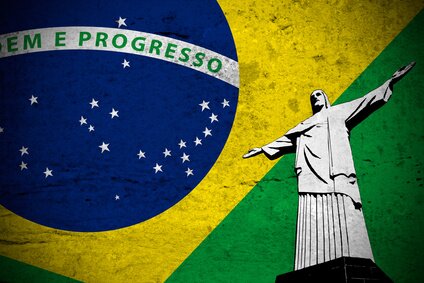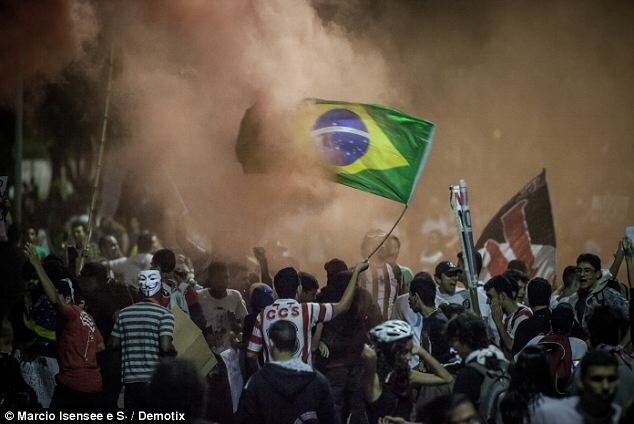Brazil’s run in the World Cup came to a halt today. Germany mercilessly scored seven goals, the final numbers settling at a shocking 7 to 1.
Brazil’s single goal, made miraculously at the 90th minute by midfielder Oscar, reeked of pity and brought no satisfaction. While I should’ve been crying for my team, I was instead crying for my country.
I was born in Belo Horizonte — home of today’s disastrous match — in 1993. My family and I lived there happily until one day it was decided the perils of living in a country overrun by violence and poverty were too much to stand. Eight years and an eight-hour flight later, I found myself living in South Florida.
I’ve assimilated into American culture to a degree where people can hardly believe I’m foreign, but I am, in fact, Brazilian, through and through.

Much of the passion I have for Brazil and being Brazilian was instilled in me because of soccer. Our love for the sport transcends fandom. It really is almost a religion, and I’ve been worshipping since birth, so today is a sad day for me.
However, although this blowout loss to Germany will be a blemish on my country’s otherwise enviable soccer history, it’s the least of Brazil’s worries.
The months leading up to the World Cup, which kicked off June 12, were tumultuous. The decision to host the tournament in Brazil was an unpopular one, to say the least. A majority of Brazilians opposed it. What, they asked themselves, can justify displacing impoverished residents simply to make way for stadiums, some of which will become obsolete as soon as the tournament is over? What can justify the diversion of government funds to a spectacle rather than education? Or public transportation? Sanitation? Preservation of indigenous lands?

The list of grievances runs long, and with reason. But maybe, just maybe, if Brazil won, things would turn out all right (relatively speaking). Yet here were are. It was all in vain, and this loss could very well be a tipping point for mayhem.
Dilma Rousseff, Brazil’s president, is up for reelection in October. As a former member of a Marxist revolutionary group, her complicity in allowing the World Cup to take place at the expense of Brazilians makes her a sell-out. She’ll pay the price when it’s time to head to the polls in October, but in the meantime, Brazilians have inflation, subpar infrastructure, corruption and wealth inequality to deal with. To say the World Cup was ill-timed would be an understatement.
Talk of protests has died down since demonstrations first erupted in early 2013, but the blowback of today’s defeat will likely be substantial, and Brazil will have to deal with the shrapnel even once everybody has gone home.
This isn’t the way it was supposed to turn out, but hey, what doesn’t kill you makes you stronger.

Via: Dailymail.co
Featured photo courtesy of: DailyMail





